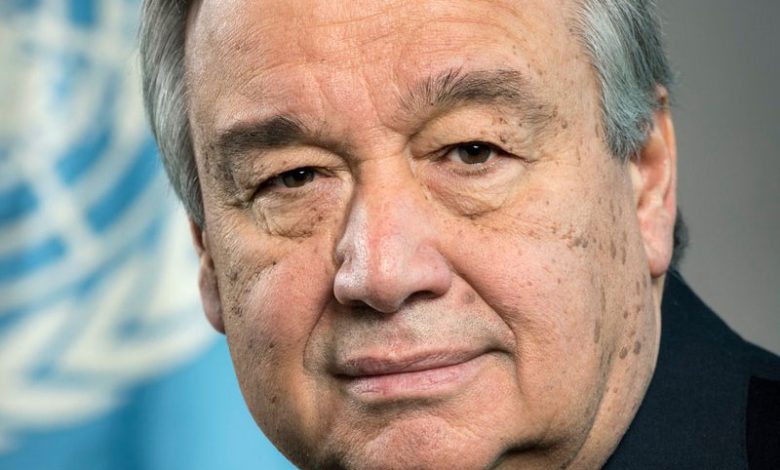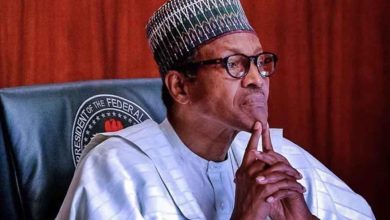
The United Nations Secretary-General Antonio Guterres recently visited Senegal, Niger, and Nigeria as part of a tour of the Sahel to assess the impact of UN interventions in the region. A discussion of the Ukraine crisis with the nations’ leaders was also part of his brief.
The visit is in recognition of the role which the region can play in global stability, both as buffer and as an alternative source of agricultural produce in the aftermath of the war in Ukraine.
The Sahelian countries are classified among the low human development countries, according to 2018 HDI (Human Development Index).
Together, the geographical expanse covers about 7 million square kilometres with a population of about 350 million people, characterized by a high population growth rate ranging between 2.6 and 3.8 percent.
The region is experiencing frequent attacks by violent extremists and emergence of jihadists’ movements, and many other challenges ranging from humanitarian to political crisis, which are threatening human development. UN intervention under the auspices of the United Nations Integrated Strategy for the Sahel (UNISS), is hinged on the UN Support Plan for the Sahel.
Read Also: Breaking: PDP demands Emefiele’s arrest, prosecution
The plan is built around six priority areas: Cross-border cooperation; Prevention and sustaining peace; Inclusive growth; Climate action; Renewable energy; and Women and youth empowerment.
The Support Plan, covering the period 2018-2030, is also expected to help the Sahel to achieve the 2030 Agenda for Sustainable Development and the African Union Agenda 2063.
The principles guiding the implementation of all UN interventions are national ownership and leadership, among others.
The improvements witnessed in the Sahel on account of UN interventions have been diminished by some multi-dimensional challenges, which are amplified by political crises, unequal distribution of wealth, lack of opportunities and basic services.
The demographic bulge, combined with climate change and the worsening security situation are other factors stifling the impact of UN interventions. Other vitiating elements include, endemic poverty, inequality (including gender inequality), deep exclusions and human rights abuses, limited access to basic services like health, education, high energy deficit, water, high rate of youth unemployment, and governance challenges and a lack of capacity of public service. UN intervention is hampered by inadequate funding, poor coordination, coherence and sometimes the inability to address the humanitarian – development nexus.
Many interventions by different UN agencies create overlaps and duplications. Meanwhile, there are some liberal concepts such as LGBTQ rights, pro-choice sentiments, which are introduced under the veneer of noble objectives like empowering women, reproductive rights, etc.
These concepts are in direct collision with Sahelian norms and culture. UN Intervention in the Sahel is not without some measurable impact such as the MINUSMA and MNJTF operations in Mali and Chad.
There are serious unattended or barely touched challenges including the deteriorating security and humanitarian situation, rising levels of displacement, social and economic inequalities, environmental degradation, and terrorist group movements as well as rise in small arms, light weapons, and drugs trafficking.
Although Sahel is among the areas most spared by the coronavirus, the crisis has had severe repercussions in the region. About 30 million people, or about nine per cent of the population, have been pushed into poverty since 2020 due to border closures and reduced activity.
And this at a time when half of the population is already living in poverty. No less than 24 million Sahelians are now in need of humanitarian aid and protection, one million more than 2019.
Beyond the numbers, which are always abstract, human tragedies like violence and food and physical insecurity continue to beset the people. Other challenges include the rising tension between pastoralists and farmers, high levels of youth unemployment, and gender inequality.
It will, therefore, be worthwhile for the UN to consider prioritising investment programmes in the Sahel through financing quick-impact projects. This will provide credible alternatives to the 65% youths in the population and prevent their recruitment as terrorists.
There is also the need to address political and governance crisis by interfacing with the governments in the region to institutionalise rule of law, inclusivity, and good governance. Global assistance to the Sahel in fighting insurgencies should be priority.
While the visit is welcome, we notice that some invited groups avoided meeting with the Secretary General on account of the visit being ‘hijacked by pro-government’ forces. Guterres should therefore appraise the situation correctly and take the necessary steps to develop an all-inclusive policy framework in handling the fallouts of the Russia-Ukraine crisis.




